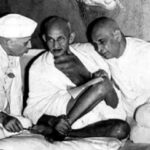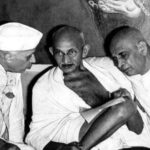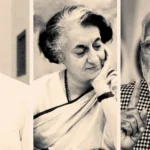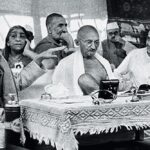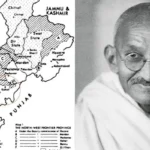One of the most debated questions in Indian history is why Mahatma Gandhi, the father of the nation, chose Jawaharlal Nehru over Sardar Vallabhbhai Patel as the first Prime Minister of independent India. Was it a matter of personal preference, political strategy, or something else? Was Mahatma Gandhi compelled to make Jawaharlal Nehru the Prime Minister of India, or was this a strategic decision driven by careful consideration of the nation’s future?
Gandhi and Nehru: A Symbiotic Relationship:
The relationship between Mahatma Gandhi and Jawaharlal Nehru was marked by mutual respect, differing ideologies, and a shared vision for India’s freedom. Gandhi, a symbol of nonviolent resistance, and Nehru, a progressive leader with a modernist outlook, formed a unique symbiosis that was pivotal in the fight against British colonial rule. Gandhi’s ability to mobilize masses through civil disobedience and his steadfast commitment to nonviolence were complemented by Nehru’s strategic thinking and intellectual prowess.
The Context of India’s Independence:
As India moved closer to independence, the question of leadership and governance became paramount. With the British gradually losing their grip on the subcontinent, the need for a capable and visionary leader to guide the newly independent nation became apparent. The Indian National Congress, under Gandhi’s guidance, had become the primary political force advocating for independence, and the choice of its leader as Prime Minister held immense significance.
Gandhi’s Role in Choosing Nehru:
Mahatma Gandhi’s role in nominating Jawaharlal Nehru as the Prime Minister was not one of compulsion, but rather a result of careful deliberation and the recognition of Nehru’s qualities that aligned with the aspirations of the nation. Gandhi saw in Nehru a leader who could bridge the gap between tradition and modernity, a man of intellect who could navigate the complexities of nation-building, and someone who shared his commitment to secularism and social justice.
While Gandhi held immense influence, he did not impose Nehru’s leadership on the nation. Instead, he played a crucial role in building a consensus within the Indian National Congress and among other leaders. Gandhi’s belief in collective decision-making was reflected in the democratic process through which Nehru emerged as the consensus candidate.

Gandhi wanted both Nehru and Patel to provide leadership to the country, but he feared Nehru could cause problems if he was not given the chance to become Prime Minister. Gandhi knew that Nehru had a strong ambition and a rebellious streak, and he did not want him to feel sidelined or frustrated. He also believed that Nehru could balance the conservative and communal elements in the country with his secular and socialist ideals.
That was also true that Gandhi had a personal bond with Nehru, as he had mentored him since his early involvement in the freedom struggle. He admired his intellect, courage, and dedication. He also felt that Nehru had sacrificed a lot for the cause of independence, and deserved to lead the nation.
Nehru’s Stature and Qualities:
Jawaharlal Nehru’s credentials as a leader were well-established. A visionary statesman, he had a deep understanding of international affairs, economic development, and social issues. His charisma and eloquence made him a unifying figure who could inspire and guide a diverse and divided nation. Nehru’s commitment to democratic principles and his belief in a pluralistic society resonated with Gandhi’s vision of a free and inclusive India.
Nehru was a popular and influential leader in the Indian independence movement and the Indian National Congress. He had a charismatic personality, a modern outlook, and a global vision. He was also seen as a representative of the younger generation and the progressive forces in the country.
These are just some of the factors that may have influenced Gandhi’s decision, but there may be others as well. Some historians have argued that Gandhi’s choice was not final or binding, and that it was ultimately up to the Congress party and the people of India to elect their Prime Minister. Others have suggested that Gandhi’s choice was influenced by external factors, such as the British government, the Muslim League, or the Mountbatten plan.
Conclusion
The choice of Jawaharlal Nehru as India’s first Prime Minister was not a result of compulsion imposed by Mahatma Gandhi, but rather a conscious decision based on the alignment of their visions and Nehru’s qualities as a leader. Gandhi’s role in this process was one of facilitation and consensus-building, reflecting his commitment to democratic principles even in the most crucial decisions. The dynamic between Gandhi and Nehru remains a testament to their shared dedication to India’s progress and their complementary roles in shaping its destiny.
I hope I have given you some useful information on this topic. Thank you for your interest in learning about the Indian independence movement. If you have any further questions, please feel free to leave them below. Thank you for reading! 😊

